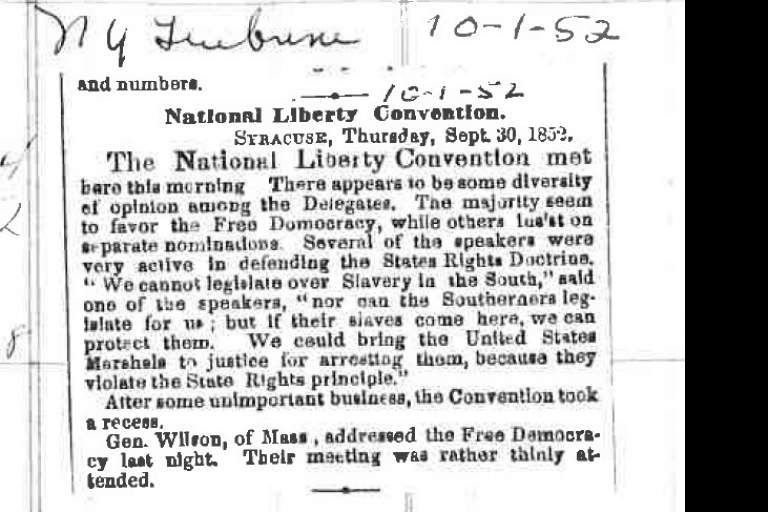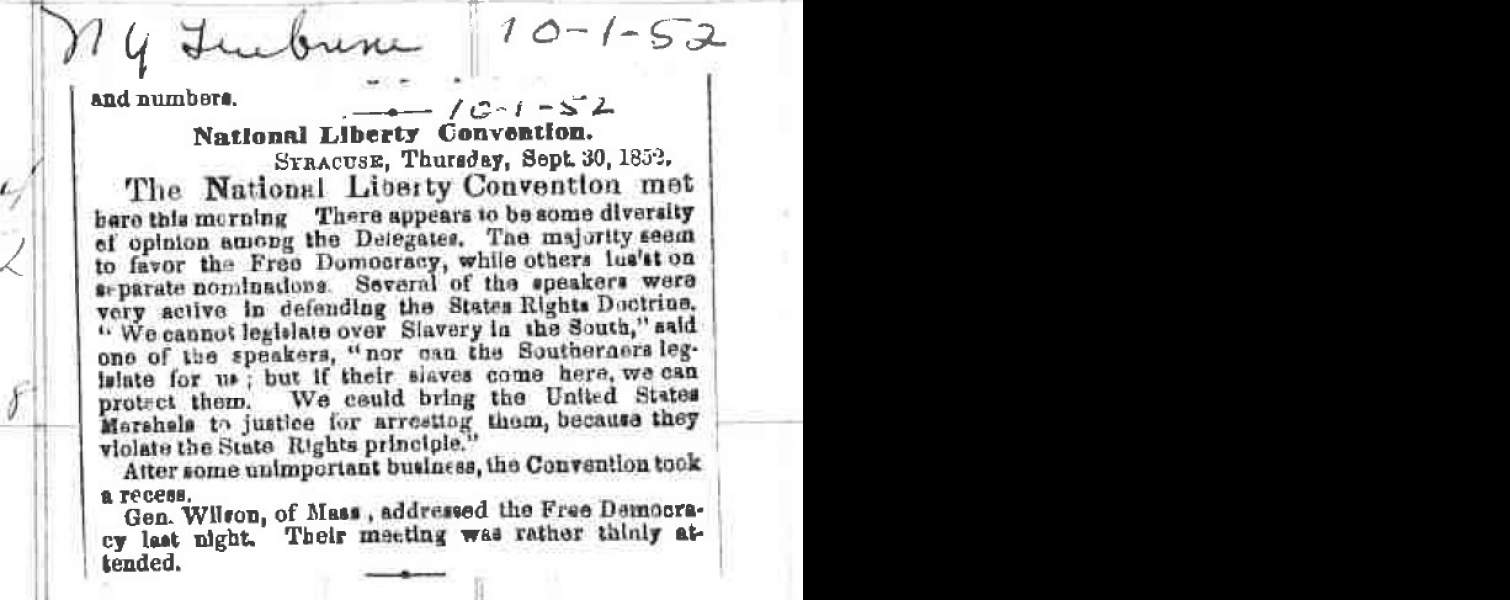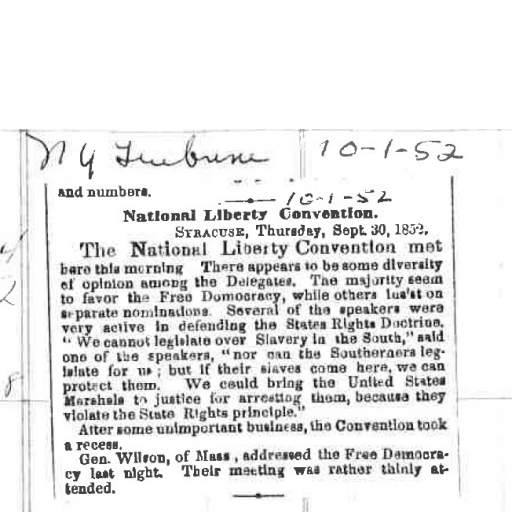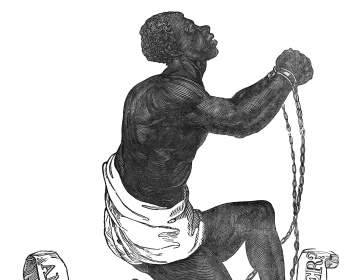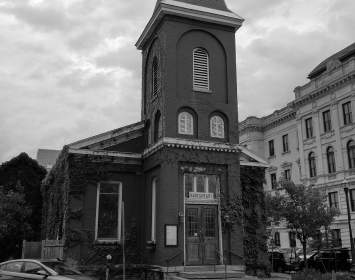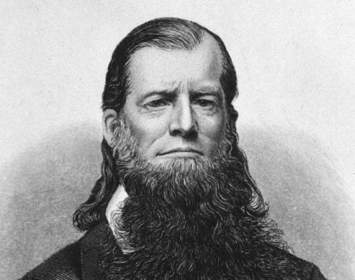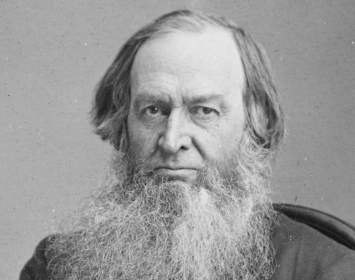On September 30, 1852, a so-called National Liberty Convention was held at Syracuse's Wesleyan Methodist Church. Following the disruptions of the 1848 U.S. presidential election, 1852 marked a turbulent period for abolition as a cause for national political action. Indeed, the primary issue at this convention was whether a remnant of the National Liberty Party should bother nominating its own candidates or endorse the candidates of the Free Democracy, apparently a New York State manifestation of the Free Soil movement.
Among those present were Gerrit Smith; former slave and Syracuse abolition leader Jermain Loguen; and the health reformer, quack physician, and future dress reformer James Caleb Jackson. Those three and six others (including two women, Antoinette Brown and Sophronia Woodruff) were named to the Convention's Business Committee.
Jackson gave a speech condemning the Fugitive Slave Law.
After controversy over which of several opposing factions should be allowed to vote—which would have the effect of determining whether or not the Convention would nominate its own presidential candidates—the delegates favoring New Democracy were overruled. William Goodell was nominated for president, and S. M. Piper of Virginia was nominated for vice president.
The national convention adjourned. There followed a state convention that nominated candidates for governor, lieutenant governor, canal commissioner, and state prison inspector.
A series of abolition speeches concluded the event.
Thanks to Sarah Kozma for research assistance.
